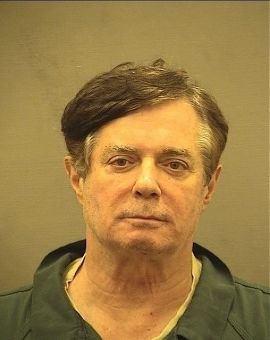Iowa State professor speaks on Manafort convictions

Paul Manafort
August 22, 2018
Paul Manafort, a former chairman of Donald Trump’s presidential campaign, was found guilty of 8 of 18 charges of financial fraud on Tuesday.
Robert Mueller, the special counsel directing the prosecution, found Manafort had illegally obtained millions of dollars by hiding income in foreign accounts and lying to banks to secure loans.
Mueller was initially brought in to investigate possible affiliations between the Trump campaign and the Russian government. In the course of the investigation the special counsel uncovered illegal activity committed by Manafort.
All of Manafort’s convicted charges are crimes committed long before he was involved with Trump’s presidential run.
“The initial impetus was of course Russian meddling,” said David Peterson, a political science professor at Iowa State. “These special prosecutors are given broad leeway to investigate anything that they learn. The investigation can evolve based on what it learns.”
Peterson began teaching at Iowa State in 2012 and serves as an editor for Political Behavior, an interdisciplinary academic journal.
Peterson stressed that these convictions don’t have anything to do with Trump, although he speculates the trial results could lead Manafort to reveal possibly damaging information about the Trump campaign later on.
“We aren’t exactly sure what the sentencing will be like for these charges, but we do have the sense that this is a life sentence for Manafort given his age,” Peterson said. “He might not want to spend the rest of his life in prison, which could lead him to be cooperate with a Trump investigation in the future.”
Manafort wouldn’t be the first Trump campaign official to cooperate with Mueller. Trump’s former personal lawyer Michael Cohen pleaded guilty to violating campaign finance laws at the direction of then-candidate Trump.
“The Manafort convictions don’t really mean anything to the Trump administration right now,” Peterson said, “but Cohen’s convictions are potentially really damaging for Trump.”
Campaign violations are not anything new in presidential races. Former President Barack Obama paid hundreds of thousands of dollars in fines for violations as well, but Peterson said Trump’s violations are different from Obama’s and any other president he could think of.
“Most campaign finance violations are accidental,” Peterson explained. “If a donor exceeds the donation limit, or a foreign national makes a donation, that’s a campaign finance violation, and it’s hard to keep track of hundreds of millions of dollars coming from millions of people. If what Cohen says is true, this is a case of a candidate actively seeking ways to subvert campaign finance laws.”
Peterson pointed out that, though many people are talking about impeachment (even before Mueller’s investigation held any convictions), impeachment is a political process, not a criminal one.
“Right now there isn’t a single Republican in the house or senate that would vote for impeachment,” Peterson said. “If the Democrats take majority of the house, or if there’s a cascading opinion of the republicans, then something might change.”
Because Trump is the sitting president, he would also avoid any criminal convictions until his term is up.
“That rule may change,” Peterson said, “but as of right now he will not be prosecuted during his time in office.”
However, these rules would not protect any of Trump’s family from being convicted.
“If Cohen or Manafort reveal things about Trump’s children, that could change things,” Peterson said. “Now, we don’t know if that’s going to happen, but it’s a scenario that might have more implications for Trump and make it even harder for him to get things done.”






